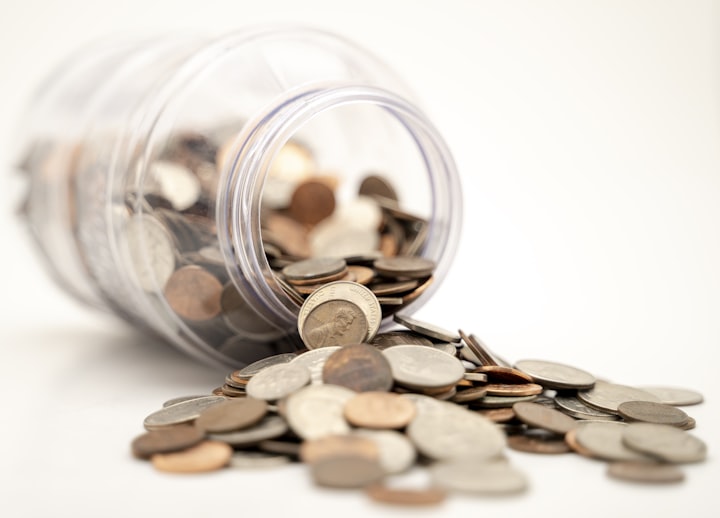Do You Have Enough Money Saved for a Medical Hardship?
Don’t be like me, increase your savings and get some private disability insurance.

Did you know there would be a pandemic that would halt the world? Did you know that rapper DMX and Prince Philip would die on the same day? Did you know that a complete stranger would be compelled to implore you to protect yourself from the unknown? No, right? There’s a lot that we don’t know beforehand. However, there are some things we can prepare for, just in case. I wish I had been warned.
Financial experts recommend you save 6-8 months worth of income to cover your expenses if you lose your job. That’s typically taking only unemployment into consideration due to layoffs or other unexpected termination, with the anticipation of reemployment. What happens if you are hit with an illness that requires long-term hospitalization? What if that hospitalization lasts longer than 6 or even 8 months?
You need to plan for the unexpected and save for a year of rainy days. My father always says, “it’s better to have it and not need it than need it and not have it.” I would have never guessed at age 40, I would be diagnosed with a rare autoimmune disease, be hospitalized for nearly a year, and require a double lung transplant. I was not prepared.
I was a self-employed medical courier so when I didn’t work, I didn’t get paid. I was contracted with a courier company and I had a route servicing a catholic hospital in the suburbs of Philadelphia. I had a subcontractor fill in for me temporarily but ultimately lost my route after eight years.
With only a few months of income saved to cover expenses, a good credit score, and about $35k in available credit, my family could only maintain for so long. My emergency fund was lacking. Luckily, I paid into a private disability insurance plan.
My biggest regret was that I hadn’t updated my plan coverage to reflect my increase in income over the years after initially establishing the policy. Most disability insurance only accounts for what would be about 70 percent of your annual earned income. So, it’s important to make necessary adjustments to maximize your benefit if you ever have to file a claim.
A savings account is helpful, but a short-term disability plan is essential. Some plans are available through your employer, while others are independent supplemental plans like Aflac or MetLife where you can get financial protection after hospitalization, critical illness, or unanticipated medical injuries. If you lose your job, you may lose your disability benefits so having a plan separate from your employer connected plan is useful.
The bills are going to keep coming even though your earned income may cease. Ensuring you’ll have money will allow you to stress less about finances while you focus on your health issues. Your recovery should matter most to you.
Had I known getting sick and becoming disabled were in the cards for me, I would have had more money in my savings account and researched the very best disability insurance for my specific needs. Some critical illness policies are only good for particular illnesses. Some policies expire once the holder reaches a certain age. While other policies have a maximum amount of payable benefit years.
Note that there is a waiting period before funds are released. Typically after ninety days of total disability, you will receive your financial benefits. So, it’s imperative to have enough in your savings to cover your household expenses while awaiting the release of your disability insurance payments. You also will require enough savings to fill in the income shortage you’ll experience since the disability insurance only supplements your income and is not 100 percent of what you’d earn if you were working.
Unfortunately, because of the shortage in my savings not all of my bills were paid on time while I was hospitalized. I was in a coma for nearly 3 months of my 10-month stay. My once 100 percent on-time payment streak was broken. No one could afford to use their own money to pay my bills for me in my absence and pay their own household bills too.
After my double lung transplant and hospital release, I was able to survive off of private disability insurance, SSDI, and child support. Child support went into arrears due to my ex-husband’s failure to pay and I began to rely heavily on credit to make ends meet.
Things became so challenging, I applied for online work from home jobs, writing gigs, and other remote worker positions to supplement my income. However, ultimately, reaching out for help through GoFundMe is what helped get me back on my feet.
We never expect to fall on hard times, especially when things are going well for us. Prepare for the worse, just in case. If you’re blessed to never experience a hardship that forces you to file a disability claim then you’re lucky. You should view getting short-term disability insurance much like you do auto insurance, health insurance or life insurance. It’s the responsible thing to do and it will give you peace of mind when you’ll need it most.
It’s the best insurance to have that you’ll never want to use.
If you’d like to see more from me, kindly give a coin of encouragement.
About the Creator
Robin Jessie-Green
Temple University BA and AIU Online MBA Alumna.
Content Contributor for Medium, eHow, Examiner, Experts123, AnswerBag, Medicine-guides.com and various other sites spanning a decade.
Visit my Writing Portfolio to see what else I've written.






Comments
There are no comments for this story
Be the first to respond and start the conversation.